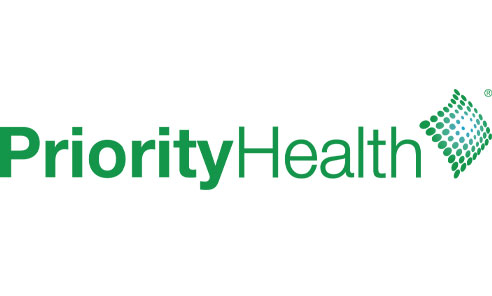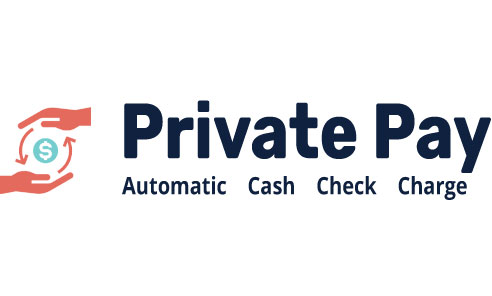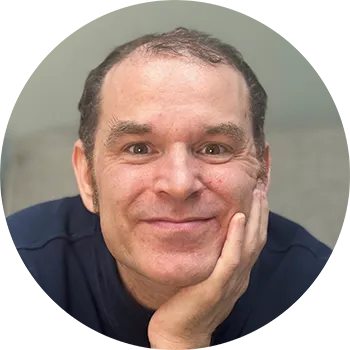
Social Anxiety Online Therapy
Support for Social Anxiety – When You Need It
We all get anxious before meetings or when seeing our friends, but for individuals with social anxiety, fear of judgment and rejection can significantly impact quality of life. Finding a way forward isn’t just about coping; it’s about reclaiming a sense of ease in everyday life.
Online therapy offers a constructive setting to address social anxiety with expert guidance and flexible support. With convenient access from anywhere and sessions that fit your schedule, you can start making progress today.
Start My Wellness offers online therapy sessions for social anxiety via Skype or Zoom with video or phone for Michigan residents. We believe in making mental health care accessible and empowering you to get the support you need–when you need it.
Why Choose Online Therapy for Social Anxiety?

Flexible Scheduling

Expert Guidance

Confidential and Secure

Convenient Access
Online Therapy for Social Anxiety: Your Path to Confidence
Social anxiety is more common than people realize, affecting about 12% of Americans at some point in their lives. It involves intense fear of being judged, embarrassed, or humiliated in social situations, from giving speeches to fitting into a new group of friends to knowing what to say during a workplace meeting.
While it’s normal to feel nervous in social situations, when anxiety becomes debilitating and affects quality of life, it can lead to social anxiety disorder. Social anxiety involves prolonged and intense fear that manifests as both psychological and physical symptoms. Often, it makes even the most routine social engagements feel impossible.
Therapy, particularly cognitive behavioral therapy (CBT), is an evidence-based approach to helping individuals with social anxiety manage their symptoms and be confident in social situations. CBT works by identifying negative thought patterns that contribute to social anxiety and developing strategies to challenge and change those thoughts.
Online therapy makes accessing these treatments more convenient while providing privacy. For CBT in particular, research has shown that it is as effective in treating anxiety disorders as in-person therapy while providing accessibility and convenience. For individuals who feel anxious about meeting in person, online therapy offers a discreet and comfortable alternative, allowing you to receive high-quality care without the added stress of leaving your home.

Online Therapy Helps You Address Social Anxiety and:
ADHD & OCD
Anger
Career Choices
Codependency
Depression
Divorce
Empowerment
Grief & Loss
Life Transitions
Low Self-Esteem
Mood Disorders
Parenting Issues
Personality Disorders
Relationships
Self-Esteem
Sexual Issues
Stress
Thought Disorders
Substance Abuse
Work/Life Balance
What to Expect During Your Social Anxiety Online Therapy
Tailored Treatment Plans
Convenient and Flexible Online Sessions
Practical Tools for Social Confidence
Continuous Feedback
Make an Appointment
To get started with Start My Wellness, schedule an appointment online or call 248-514-4955. During the scheduling process, we will ask questions to match you with the therapist who will best meet your needs including service type, emotional symptoms and availability.
Call (248) 514-4955
-OR-
Does Insurance Cover Social Anxiety Online Therapy?
Many insurance plans cover Online Therapy. However, coverage largely depends on the specific insurance provider and plan. We recommend you discuss coverage for behavioral health services with your provider to ensure online therapy is eligible.
Start My Wellness accepts most major insurance plans, including Blue Cross Blue Shield, Aetna, and Priority Health. Additionally, we offer reimbursements by medical savings accounts, including HSAs, MSAs, FSAs, and HRAs.
At Start My Wellness, we understand that one of the most important questions when choosing therapy is, “How much will it cost?”
That’s why we’re committed to providing transparent access to cost and billing information, and offer a free cost estimate before starting therapy.
Our Social Anxiety Therapists
Specialties
Type of Therapy
Patient Population
Issue Focus
Insurance Accepted
Read Full Bio +
Specialties
Type of Therapy
Patient Population
Issue Focus
Insurance Accepted
Read Full Bio +
Specialties
Type of Therapy
Patient Population
Issue Focus
Insurance Accepted
Read Full Bio +
Specialties
Type of Therapy
Patient Population
Issue Focus
Insurance Accepted
Read Full Bio +
Specialties
Type of Therapy
Patient Population
Issue Focus
Insurance Accepted
Read Full Bio +
Specialties
Type of Therapy
Patient Population
Issue Focus
Insurance Accepted
Read Full Bio +
Specialties
Type of Therapy
Patient Population
Issue Focus
Insurance Accepted
Read Full Bio +
Specialties
Type of Therapy
Patient Population
Issue Focus
Insurance Accepted
Read Full Bio +
Specialties
Type of Therapy
Patient Population
Issue Focus
Insurance Accepted
Read Full Bio +
Specialties
Type of Therapy
Patient Population
Issue Focus
Insurance Accepted
Read Full Bio +
Specialties
Type of Therapy
Patient Population
Issue Focus
Insurance Accepted
Read Full Bio +
Specialties
Type of Therapy
Patient Population
Issue Focus
Insurance Accepted
Read Full Bio +
Specialties
Type of Therapy
Patient Population
Issue Focus
Insurance Accepted
Read Full Bio +
Specialties
Type of Therapy
Patient Population
Issue Focus
Insurance Accepted
Read Full Bio +
Specialties
Type of Therapy
Patient Population
Issue Focus
Insurance Accepted
Read Full Bio +
Specialties
Type of Therapy
Patient Population
Issue Focus
Insurance Accepted
Read Full Bio +
Specialties
Type of Therapy
Patient Population
Issue Focus
Insurance Accepted
Read Full Bio +
Specialties
Type of Therapy
Patient Population
Issue Focus
Insurance Accepted
Read Full Bio +
Specialties
Type of Therapy
Patient Population
Issue Focus
Insurance Accepted
Read Full Bio +
Specialties
Type of Therapy
Patient Population
Issue Focus
Insurance Accepted
Read Full Bio +
Specialties
Type of Therapy
Patient Population
Issue Focus
Insurance Accepted
Read Full Bio +
Specialties
Type of Therapy
Patient Population
Issue Focus
Insurance Accepted
Read Full Bio +
Specialties
Type of Therapy
Patient Population
Issue Focus
Insurance Accepted
Read Full Bio +
Specialties
Type of Therapy
Patient Population
Issue Focus
Insurance Accepted
Read Full Bio +
Specialties
Type of Therapy
Patient Population
Issue Focus
Insurance Accepted
Read Full Bio +
Specialties
Type of Therapy
Patient Population
Issue Focus
Insurance Accepted
Read Full Bio +
Specialties
Type of Therapy
Patient Population
Issue Focus
Insurance Accepted
Read Full Bio +
Specialties
Type of Therapy
Patient Population
Issue Focus
Insurance Accepted
Read Full Bio +
Specialties
Type of Therapy
Patient Population
Issue Focus
Insurance Accepted
Read Full Bio +
Specialties
Type of Therapy
Patient Population
Issue Focus
Insurance Accepted
Read Full Bio +
Specialties
Type of Therapy
Patient Population
Issue Focus
Insurance Accepted
Read Full Bio +
Specialties
Type of Therapy
Patient Population
Issue Focus
Insurance Accepted
Read Full Bio +
Specialties
Type of Therapy
Patient Population
Issue Focus
Insurance Accepted
Read Full Bio +
Specialties
Type of Therapy
Patient Population
Issue Focus
Insurance Accepted
Read Full Bio +
Specialties
Type of Therapy
Patient Population
Issue Focus
Insurance Accepted
Read Full Bio +
Specialties
Type of Therapy
Patient Population
Issue Focus
Insurance Accepted
Read Full Bio +
Specialties
Type of Therapy
Patient Population
Issue Focus
Insurance Accepted
Read Full Bio +
Specialties
Type of Therapy
Patient Population
Issue Focus
Insurance Accepted
Read Full Bio +
Make an Appointment
To get started with Start My Wellness, schedule an appointment online or call 248-514-4955. During the scheduling process, we will ask questions to match you with the therapist who will best meet your needs including service type, emotional symptoms and availability.










































